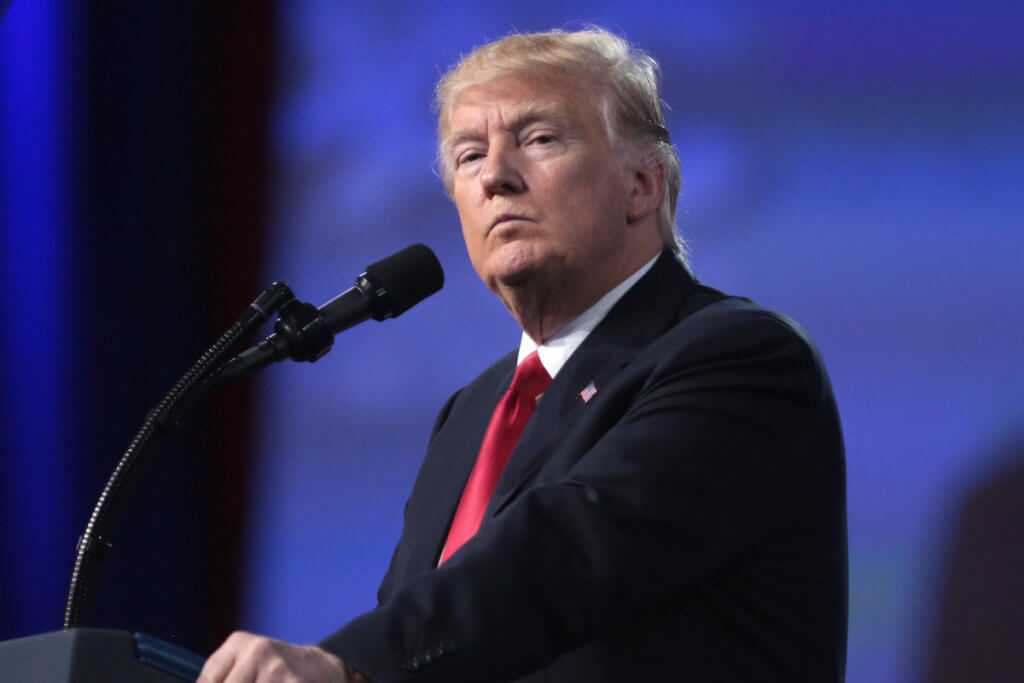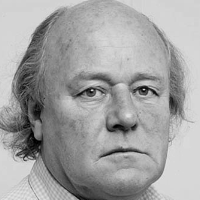Former President and GOP nominee Donald Trump remains a popular figure in Israel. A recent poll found that 58% of Israelis would vote for Trump, while just 25% would vote for Harris.
MONDOWEISS

Former President and GOP nominee Donald Trump remains a popular figure in Israel.
A recent Channel 12 poll found that 58% of Israelis would vote for Donald Trump, while just 25% would vote for Vice President Kamala Harris. 17% said they didn’t know who they would choose.
Israel was one of the only countries in the world where Trump maintained favorable approval ratings throughout his presidency.
“A recurring theme on this site is that Americans have no idea of Israel’s real character, a rightwing society with a strong militarist authoritarian streak,” wrote Phil Weiss and James North at the site in 2020, shortly before Trump lost to Biden. “Israel supporters don’t want that picture to get out in the U.S., because they will surely lose bipartisan political support for the $4 billion we send Israel every year, and the complete impunity we provide for Israel’s human rights violations. Israel needs to be as American as cherry pie.”
At the time Weiss and North were reporting on a poll showing that Trump was backed more than three to one by Israeli Jews.
This week Trump will give two speeches to pro-Israel audiences.
First, he’ll speak to a group of Jewish supporters in DC about countering antisemitism.
Jewish Insider’s Matt Kassel reports that Orthodox businessman Yehuda Kaploun and his business partner Ed Russo will host the event.
A source told Kassel that the event will allow Trump to speak with Jewish leaders “about his plans to combat the wave of antisemitism and antisemitic behavior and enforce the laws for religious liberty to all.”
Miriam Adelson is expected to attend. The GOP megadonor is reportedly set to spend more than $100 million to elect Trump in November.
In DC Trump will also address the Israeli American Council’s (IAC) national convention. The IAC is led by lan Carr, who served as the envoy to combat antisemitism under Trump. Its largest donor is Adelson.
U.S. Troops Leaving Iraq
Earlier this month Reuters reported that U.S. and Iraqi negotiators had agreed on a deal to pull hundreds of troops out of Iraq in 2025 with the last remaining U.S. soldiers leaving Iraq by 2026.
During the recent presidential debate Kamala Harris claimed that there are no U.S. troops in active combat zones today. That is demonstrably untrue.
Last year USA Today published data culled from Brown University’s Cost of War project. The paper found that the U.S. military carried out counterterrorism operations in 78 countries from 2021 to 2023.
From the report:
The findings cover the first three years of the Biden administration and show the range of globe-spanning operations where U.S. troops have engaged in direct combat, launched drone attacks, patrolled borders, gathered intelligence and trained other nations’ militaries and security forces.
The scope of the operations is partly determined by the 2001 Authorization for the Use of Military Force, or AUMF − and a 2002 measure authorizing the war in Iraq. For more than two decades, these authorizations have been used to justify U.S. counterterrorism operations in dozens of countries. Opponents of these laws − who label them “zombie war” authorizations − such as Sen. Tim Kaine, D-Va., say they go far beyond the scope of their original intention. Multiple attempts to repeal them are now stalled in Congress.
At Responsible Statecraft Christopher Mott wonders why U.S. troops can’t be pulled out of Syria along with the soldiers leaving Iraq.
Mott:
Next door to Iraq is Syria, a country whose own brutal and long-running civil war has also seen over a decade of U.S. intervention, from the ill-conceived Operation Timber Sycamore, the largest known C.I.A. arm and equip program in history, to direct U.S. occupation via bases of significant parts of the east of the country. Meanwhile, a long coordinated regime change campaign targeting President Bashir al-Assad failed after exacerbating the situation on the ground.
Operation Timber Sycamore was later exposed as having helped a rebel movement that was disproportionately Islamist and often linked to informal or even explicit alliances with al-Qaida affiliates. The goals of these movements often included the imposition of a theocratic government and the forced conversion or even extermination of sectarian minority groups. Barely more than a decade after 9/11, the U.S. was undermining its own self-proclaimed “War on Terror” in order to conduct regime change.
Out of this chaotic mess would come the rise of ISIS, something unlikely to have gotten so much traction without all the non-state actors that grew up in the wake of both Iraq and Syrian wars.
There is virtually no public discussion on this issue from the presidential candidates, congressional members, or mainstream media.




